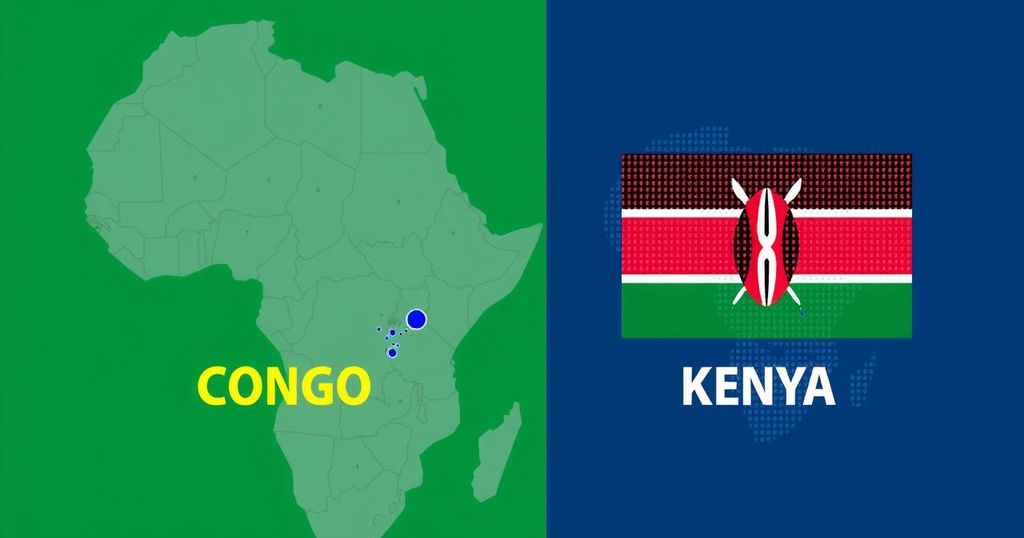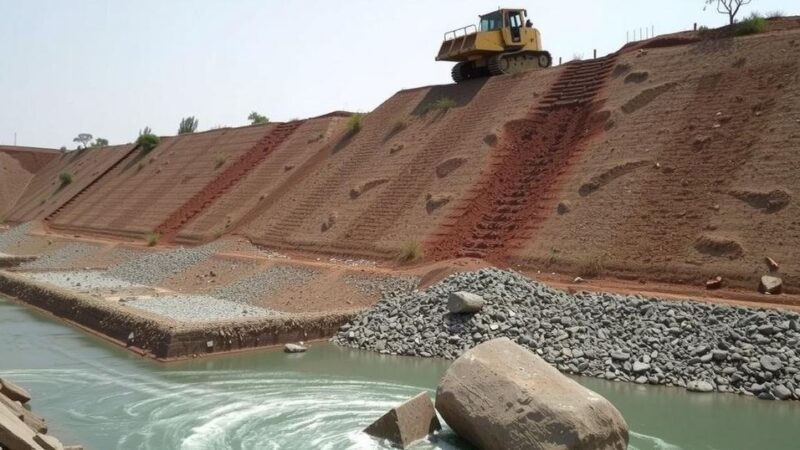A recent report from Control Risks and Oxford Economics identifies the Democratic Republic of Congo (DRC) and Kenya as the riskiest investment destinations in East Africa, with DRC receiving a risk score of 7.6 and Kenya scoring 6.06. The report highlights deteriorating political and economic conditions in both countries. Meanwhile, Rwanda is noted as the safest investment location in the region. The findings underscore the significant impact of governance and socio-economic stability on investment strategies in East Africa.
A recent report from Control Risks and Oxford Economics Africa has identified the Democratic Republic of Congo (DRC) and Kenya as the riskiest investment destinations in East Africa, attributing this designation to various political, social, and economic threats. According to the Africa Risk-Reward Index 2024, released on October 30, 2023, the DRC received a risk score of 7.6 out of 10, while Kenya scored 6.06. Other countries, including Uganda and Tanzania, followed with risk scores of 6.01 and 5.37 respectively. In contrast, Rwanda emerged as the safest investment location in the region, earning a risk score of 5.11. The report evaluated each country’s risks based on economic and political factors assessed on a scale of 1 to 10, with a higher score indicating increased risk. Conversely, the reward scores were also rated from 1 to 10, where a higher score signified greater expected rewards. These reward scores consider aspects such as the medium-term economic growth forecast, economic structure, and demographics, with growth outlook being particularly influential as it correlates with increased investment opportunities. The findings highlighted a notable decline in Kenya’s reward score, which fell by 0.08 from the previous year to 5.25 in September 2024, while its risk score rose by 0.26 to 6.06. This resulted in an overall drop in the combined risk-reward score by 0.34. Similarly, the DRC also faced a decrease in both its reward score, which dropped by 0.23 to 5.65, and its risk score by 0.07 to 7.6, culminating in an overall risk-reward score decrease of 0.3. In the previous month, S&P Global downgraded Kenya’s credit rating, attributing this decision to the withdrawal of the controversial Finance Bill 2024 and marking the third rating agency to downgrade the nation’s creditworthiness, along with Fitch and Moody’s Investor Service, largely due to concerns surrounding revenue forecasts amid an escalating debt crisis. The report indicates persistent anti-government sentiment in Kenya, particularly following protests against the Finance Bill 2024, which culminated in the withdrawal of the proposed tax law. President William Ruto’s perceived betrayal of his election promises to improve citizens’ lives, juxtaposed with high inflation and a depreciating currency, has raised concerns about future governmental tax policies affecting essential commodities. In the DRC, ongoing violence in the eastern regions exacerbates the alarming humanitarian crisis, displacing millions who are now confined to overcrowded camps with severely restricted access to basic necessities. The Congolese army is currently engaged in conflict with the M23 rebel group, which has been progressively encroaching on territory in eastern DRC since 2022.
The Africa Risk-Reward Index is a comprehensive analysis produced by Control Risks and Oxford Economics that evaluates countries in Africa based on their investment risk and potential rewards. This assessment encapsulates a variety of factors, ranging from economic performance and political stability to social circumstances. The report informs potential investors about the relative safety and opportunity offered by different nations, thus influencing their investment decisions. In the context of East Africa, the findings regarding the DRC and Kenya underscore pertinent concerns regarding governance, economic viability, and stability, all of which are crucial elements for foreign investment. Thus, the rankings are not only a reflection of the current climate but also an indication of long-term economic prospects and risks. Immediate events, such as the proposed tax measures in Kenya and the humanitarian issues in the DRC, further complicate the investment landscape, making careful consideration essential for any potential investors.
The Africa Risk-Reward Index 2024 reveals that the Democratic Republic of Congo and Kenya are viewed as the most perilous investment locales in East Africa, largely due to political instability, economic challenges, and social unrest. The decline in their risk-reward standings over the past year signals growing investor caution, particularly in light of Kenya’s recent credit rating downgrades and the worsening humanitarian situation in the DRC. On the other hand, Rwanda is recognized as a comparatively safer investment destination, demonstrating the diverse risk landscapes within the region. Such evaluations are vital for stakeholders aiming to navigate the complexities of investment in East Africa.
Original Source: www.theeastafrican.co.ke







